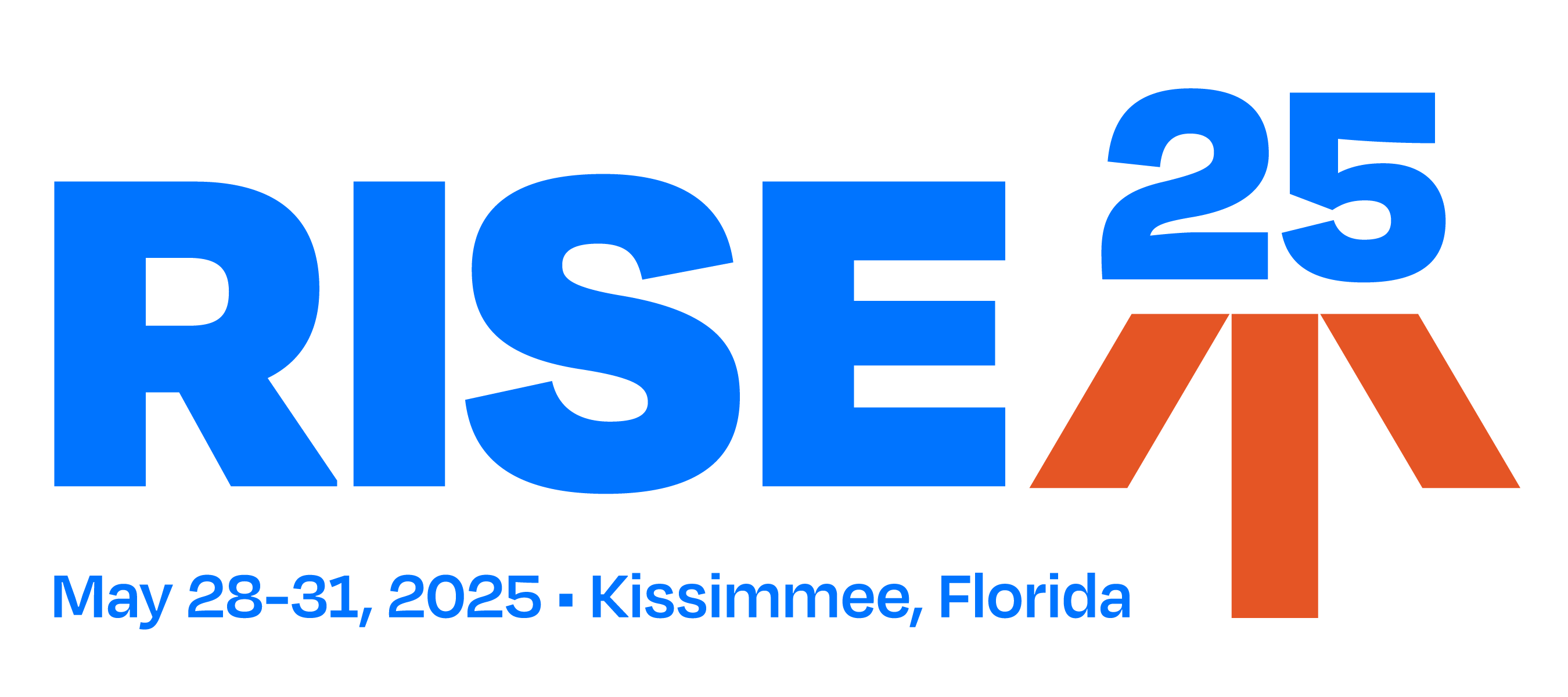RISE23 Awards
RISE23 Awards
Each year at RISE, All Rise honors those extraordinary professionals who exemplify the ideals of the treatment court field. This year at RISE23, we bestowed the following awards:
- Stanley Goldstein Treatment Court Hall of Fame
- Equity and Inclusion Award
- DWI Court Leadership Award
- Hank Pirowski Award
- Juvenile and Family Treatment Court Award
Stanley Goldstein Treatment Court Hall of Fame

The Honorable Charles Burns
Judge Burns is a leader, mentor, and visionary within the treatment court community. Since 2010, he has presided over the Rehabilitative Alternative Probation and Woman’s Rehabilitative Alternative Probation treatment courts in Cook County, Illinois. Under his leadership, these programs have been recognized as national mentor courts by the Bureau of Justice Assistance three times. His embrace of equity and inclusion, trauma-informed care, medication for opioid use disorders, employment assistance, and criminal record relief has significantly enhanced program outcomes.
In 2019, Judge Burns partnered with the Cook County Housing Authority on an innovative program to provide housing vouchers to treatment court participants. And just this year, Judge Burns’ programs were selected by All Rise to participate in the Recovery Capital Pilot Project with Sesame Street in Communities.
The Veterans Treatment Court Hall of Fame
The Honorable Eileen C. Moore
Associate justice on the California Courts of Appeal, Justice Moore served in the U.S. Army Nurse Corps and as a combat nurse during the Vietnam War. She was awarded the Vietnam Service Medal, National Defense Service Medal, and Cross of Gallantry With Palm. After returning home, she became and remains a registered nurse in addition to her impressive judicial career.
In 2008, Justice Moore founded and continues to chair the Veterans and Military Families Subcommittee for all California courts. She volunteered as a mentor in California’s first veterans treatment court for nine years and has contributed to the state’s expansion to 48 veterans treatment courts. She has published over 100 articles in California’s leading legal outlets, 80 of which are focused on military and veteran issues and the courts.
For her many years of service, her innovation and dedication, and her continued advocacy on behalf of our military and veteran service members, we welcome Justice Eileen C. Moore into the Justice for Vets Hall of Fame.
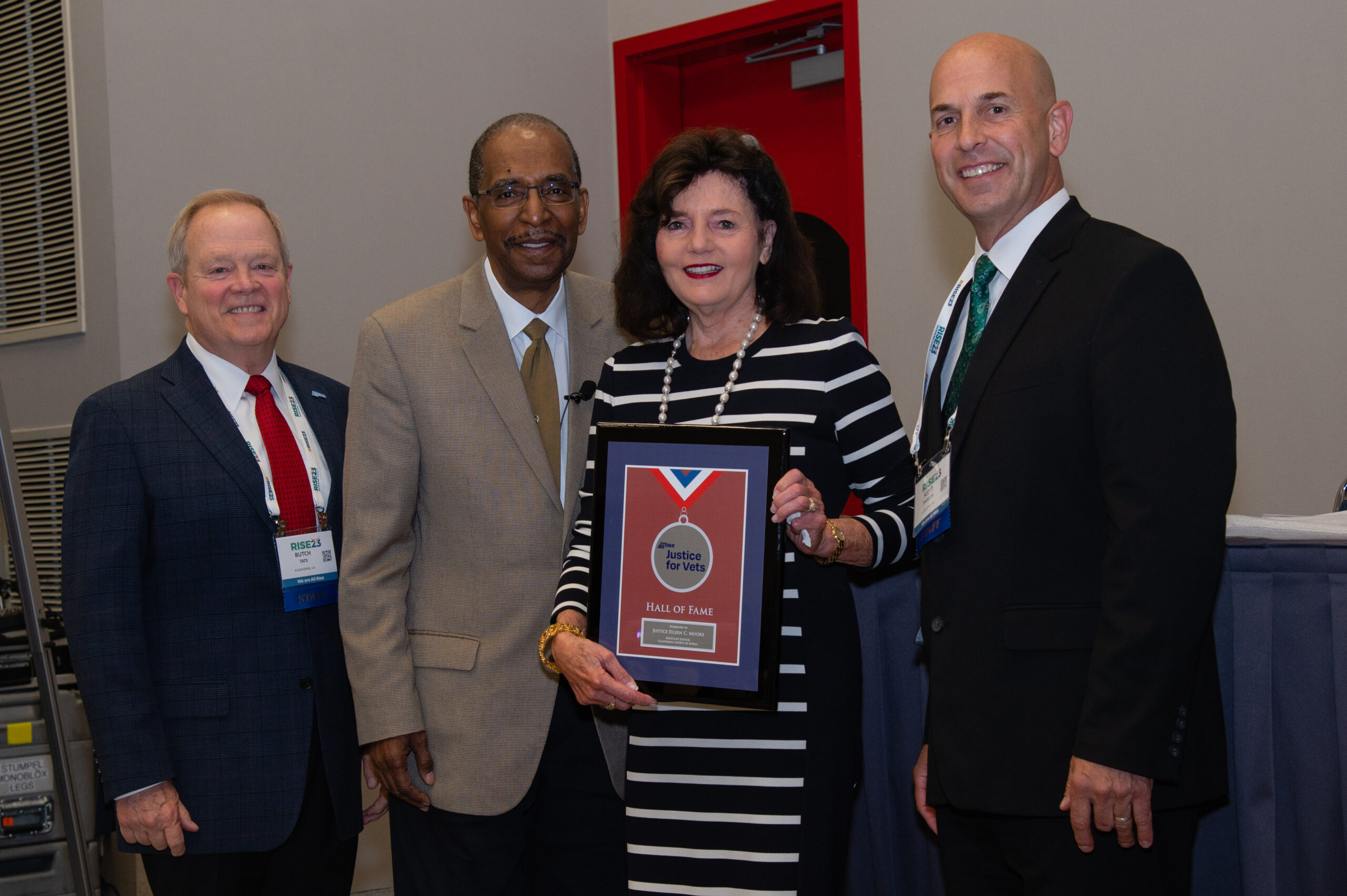
The Hank Pirowski Award
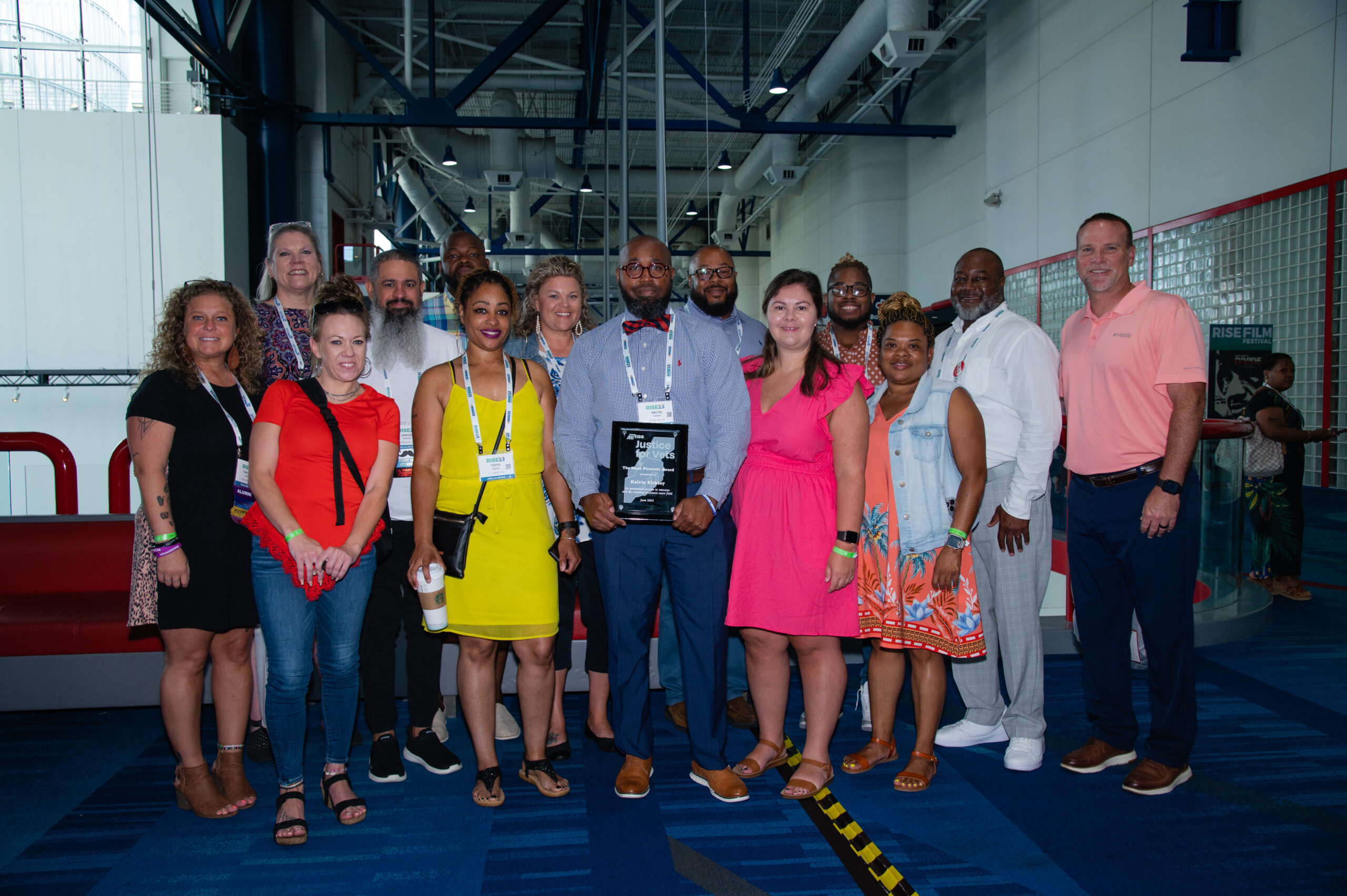
Kalvin Kerksey
Mr. Kirksey is the Veterans Treatment Coordinator for Muscogee County, Georgia. Since his role as coordinator, he has been instrumental in ensuring that the program continues to thrive and sustain well beyond its current operations. He has developed and implemented strategies that have ranged from rewriting program policy and procedures by ensuring transparency and adherence to the state and national best practices standards to placing staff/team professional development at the highest level of importance. He has been instrumental in growing the multidisciplinary team from a select few individuals to sixteen core actors that work to ensure individuals are empowered to succeed in the program and after completion (into commencement).
Anecdotally, his efforts have resulted in increased participant completion rates, increased treatment provider(s) presence, and prosocial supportive role modeling with participants in the program as well as alumni. His peers believe he has gone far beyond the role for which he has been employed and that he is an inspirational presence within the program.
The DWI Court Leadership Award
The Bernalillo County DWI Recovery Court
New Mexico’s Bernalillo County DWI Recovery Court has the largest capacity in the entire state and since its founding in 1997, it boasts more than 3,700 alumni and a graduate recidivism rate of less than 5%. Focusing on constant improvement, equity, and inclusion by following the research and incorporating best practices, the program serves individuals with repeat impaired-driving offenses who have substance use disorders and co-occurring disorders, and developed an entire track dedicated to Spanish-speaking participants. The team has also ensured inclusive group therapy options for Native Americans and LGBTQ individuals.
Striving to individualize services for each participant, the program offers a range of treatment options and therapies, including medication for addiction treatment. They assist with practical needs such as health insurance, rent assistance, and employment opportunities.
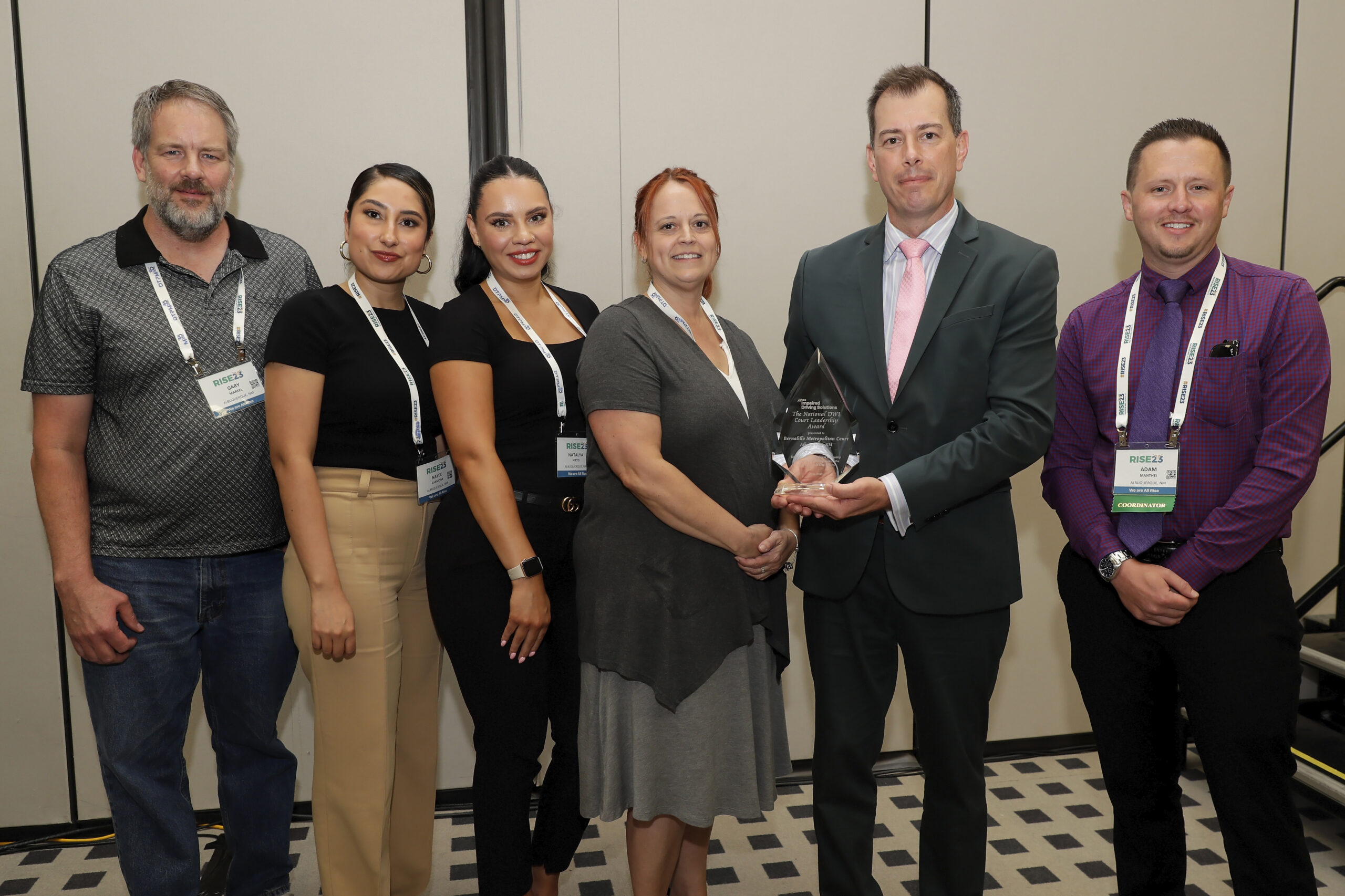
The Juvenile/Family Treatment Court Leadership Award
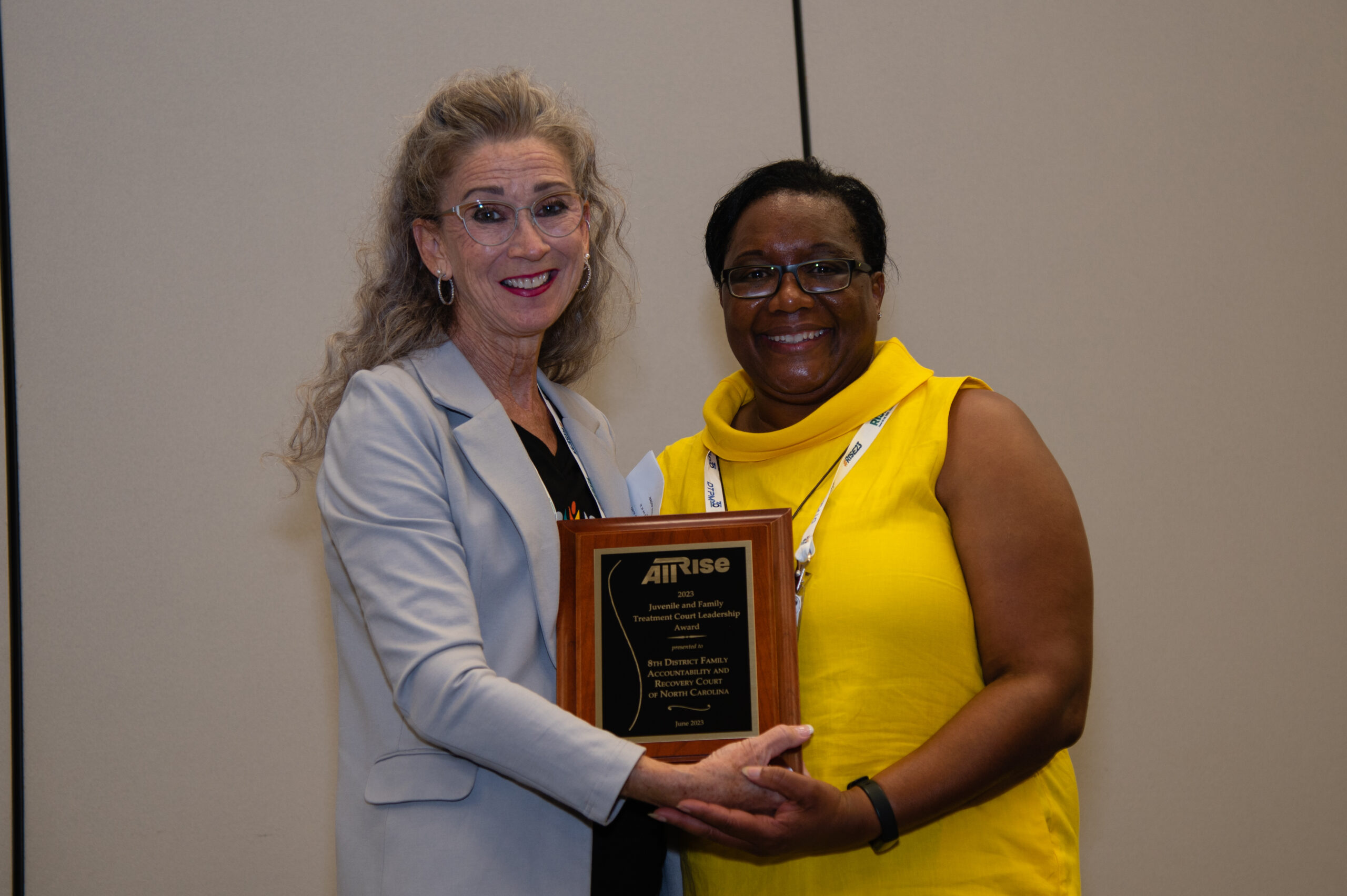
The North Carolina 8th Judicial District Family Accountability and Recovery Court (FARC)
The North Carolina 8th Judicial District Family Accountability and Recovery Court represents one of the state’s most economically distressed communities. Environmental damage from coastal flooding and the economic downturn have fueled higher rates of unemployment, drug use, and crime; declining health standards and educational attainment levels; and greater food insecurity. These counties are mostly rural, adding to the challenge of providing robust treatment, recovery, and other support services.
The FARC program, under Judge Elizabeth Heath’s leadership, has built an impressive array of local partners, ranging from collaborations with local employers and community colleges to inclusive and trauma-informed treatment and recovery support services—including access to a mobile clinic and medication for addiction treatment—as well as affordable recovery housing. Thanks to these partnerships and support from the dedicated court team, participating families are twice as likely to reunify with their children.
Finally, the FARC program leads the Recovery Together ENC Coalition, which provides harm reduction education and resources to reduce stigma, save lives, and foster recovery in the tri-county community.
